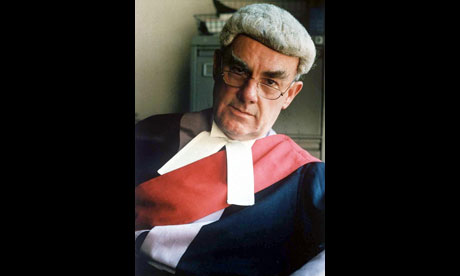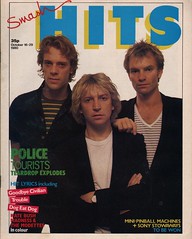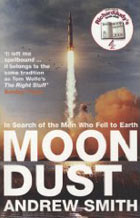
And so, with no fanfare whatsoever, the 5th annual ItP end-of-year shindig. Well, if all the newspapers are doing it, why can't we?


Opening up a wormhole right back to 1991, it's Tamaryn. Yes, it's as if shoegazing never went away. But when the sound is this great, who's complaining? Not me.


 Galliano
Galliano

 Another ace blog to peruse if you ever tire of my intermittent posting rate: Bagging Area. Which comedian recently suggested that "Unexpected Item In The Bagging Area" should become our national motto? I can't remember. Anyhoo, take a look: good posts, well written, deftly-chosen mp3s. That's Bagging Area, incidentally, not Irk The Purists, obv.
Another ace blog to peruse if you ever tire of my intermittent posting rate: Bagging Area. Which comedian recently suggested that "Unexpected Item In The Bagging Area" should become our national motto? I can't remember. Anyhoo, take a look: good posts, well written, deftly-chosen mp3s. That's Bagging Area, incidentally, not Irk The Purists, obv.
A new wave of strike action across the public sector began last night with massive disruption to the London Underground, as 11,000 staff began another 24-hour walkout that will affect millions of commuters. A Bonfire Night strike for firefighters also looms on Friday, as no progress was made during talks with brigade officials yesterday, according to sources close to the discussions. Tensions rose when two demonstrators were injured during the latest round of industrial action by the Fire Brigades Union (FBU), after they were hit by vehicles trying to break the picket line.
 The best thing I saw at the Festival this year by a country mile (pun intended) was the none-more-radio-unfriendly Kunt and the Gang.
The best thing I saw at the Festival this year by a country mile (pun intended) was the none-more-radio-unfriendly Kunt and the Gang.She showed me pictures of her threesomes/I couldn't believe my eyes/She'd been rogered by Rodgers & Hammerstein/And skied with Morecambe & Wise/She'd been spit-roasted by Chas & Dave/And felched by Blazin' Squad/She got a facial when the lead singer/From Showaddywaddy lost his wad/From Adam Ant to Zucchero/They'd all been up her snitch/She'd pulled a train on Dave Dee/Dozy, Beaky, Mick and Titch!The other thing that saves him from charges of blatant misogyny and the sort of macho nonsense espoused by most R-rated comedians is his inclusive view of sexuality. The Macc Lads, for example, would never have entertained writing a song like I Sucked Off A Bloke or penned a verse about fantasising over a transsexual, as Kunt does in Wank Fantasy (both below).








It therefore pains me to have to say that the most recent release on his usually execrable Bad Boy Records label is an out-and-out winner. That it also displays much of the verve and imagination of the artists that Diddy, Kanye, and the blowhards that recorded for Death Row have largely displaced (i.e. showmen like Ram Ell Zee and Afrika Bamabaataa) is telling. Janelle Monae (for it is she) has looked beyond the tired tropes of "The Street" and turned her eyes skywards, and the result is compelling and at times quite audacious. A concept album (a phrase which usually induces suspicion, not least in hip-hop where a "concept album" is often sub-par material linked by weak and unfunny "skits"), Archandroid is reportedly based on Fritz Lang's Metropolis, and while I occasionally lost the conceptual thread that supposedly links the work to the film that served as its inspiration, there's no doubt that Lang's masterpiece has spurred Monae to vault far ahead of her contemporaries. The film, which up until now had only given rise to a mediocre re-interpretation by Queen, has inspired her to create a dazzling melange that takes in R&B, rap, pastoral folk and psych rock, and features a guest appearance by Georgia art-rockers Of Montreal, the latter telling you all you need to know about Monae's expansive and inclusive worldview. As others have pointed out, she displays the ambition and range that Prince did in his heyday. High praise indeed. Anyway, it's well worth a listen (the tracks Sir Greendown, 57821, and Mushrooms & Roses are particularly good), as is its predecessor Metropolis: The Chase Suite, supposedly the first part of this ongoing "suite" . They're both on Spotify and available to buy (links below). BTW, I have two Spotify unlimited free invites (i.e. not the 20-hour a month ones) to give away; if anyone can make use of them, let me know in the comments and I'll pass 'em on.
Listen to Archandroid on Spotify
 Here at Irk The Purists Towers, we've had some success in flushing out our heroes (and heroines) that are currently languishing in the "Where Are They Now?" files. For instance, Todd Levin stuck his head above the parapet in response to this post. And Fiona Russell Powell got in touch as a result of this, and on subsequently meeting La Powell, I can happily report that she's as vivacious and waspish as ever.
Here at Irk The Purists Towers, we've had some success in flushing out our heroes (and heroines) that are currently languishing in the "Where Are They Now?" files. For instance, Todd Levin stuck his head above the parapet in response to this post. And Fiona Russell Powell got in touch as a result of this, and on subsequently meeting La Powell, I can happily report that she's as vivacious and waspish as ever. If you're quick (i.e. before Sunday evening 27th June), you can catch the ever-obliging Dave Pearce interviewing Morgan Khan, ex- (and now current) MD of StreetSounds, which, with its policy of compiling the best import 12 inches on to a single album retailing at a fiver every few months, played a huge part in widening tastes back in the day. That it also led to the demise of compilations on labels like K-Tel and Ronco is incidental. It's terrific stuff, and reminds you of what a central part these two played in the development of the electro, soul, R&B and "urban" (i.e. record company-speak for "black") music scenes in Britain. In fact, why hasn't Morgan Khan been knighted yet?
If you're quick (i.e. before Sunday evening 27th June), you can catch the ever-obliging Dave Pearce interviewing Morgan Khan, ex- (and now current) MD of StreetSounds, which, with its policy of compiling the best import 12 inches on to a single album retailing at a fiver every few months, played a huge part in widening tastes back in the day. That it also led to the demise of compilations on labels like K-Tel and Ronco is incidental. It's terrific stuff, and reminds you of what a central part these two played in the development of the electro, soul, R&B and "urban" (i.e. record company-speak for "black") music scenes in Britain. In fact, why hasn't Morgan Khan been knighted yet?
The BBC Trust’s recent review of Radio 6 Music confirmed that it is popular amongst its fan base and its music offering is distinctive. However, although it has achieved good growth in recent years, it has low reach and awareness and delivers relatively few unique listeners to BBC radio. And whilst 6 Music does not have a target demographic audience, its average listener age of 37 means that it competes head-on for a commercially valuable audience. Boosting its reach so that it achieved appropriate value for money would significantly increase its market impact. Given the strength of its popular music radio offering from Radio 1 and 2 and the opportunity to increase the distinctiveness of Radio 2, the BBC has concluded that the most effective and efficient way to deliver popular music on radio is to focus investment on these core networks.
Commercial radio can never replicate 6 Music’s cultural value – it’s not viable for us to do so. The commercial landscape has featured many fine rock music stations that have never made any real money – over time we water them down and gently shepherd them back towards the traditional commercial heartland. We will gain nothing from this closure yet the music industry will lose much.
And enjoy this mash-up of the Thick of It, Jeremy Paxman and “Thommo”:
And then, finally, ask yourself, "Am I really going to side with this guy Thompson?" If the answer's no, for any reason, please address your concerns to the BBC Trust here.
*"The BBC should concentrate more than ever on being a creator of quality. It should focus even more than it does today on forms of content that most clearly build public value and that are most at risk of being ignored or facing underinvestment. It should take significant further steps towards building the distinctiveness and uniqueness of its programmes and services."http://www.guardian.co.uk/commentisfree/2010/mar/01/bbc-must-stop-trying-do-everything
 I’ve just finished a fantastic book, Moon Dust by Andrew Smith. I’m a total sucker for any (non-fiction) accounts of the Space Race, and Tom Wolfe’s The Right Stuff has, until now, remained the one by which all others should be judged. However I’m going to go out on a limb and say that Smith’s tome (published in 2005) just edges out Wolfe’s earlier account. This is slightly unfair, as we’re not quite comparing like with like: The Right Stuff confines itself to the study of the origins of NASA and the early Mercury programme, where ex-pilots like Al Shepard, John Glenn and Gus Grissom became, essentially, “Spam-in-a-can”, slightly more evolved versions of Laika or Able & Baker, for the first orbital earth flights. Smith’s book, on the other hand, looks at the Apollo missions, and specifically the twelve men that walked on the moon, nine of whom are still alive.
I’ve just finished a fantastic book, Moon Dust by Andrew Smith. I’m a total sucker for any (non-fiction) accounts of the Space Race, and Tom Wolfe’s The Right Stuff has, until now, remained the one by which all others should be judged. However I’m going to go out on a limb and say that Smith’s tome (published in 2005) just edges out Wolfe’s earlier account. This is slightly unfair, as we’re not quite comparing like with like: The Right Stuff confines itself to the study of the origins of NASA and the early Mercury programme, where ex-pilots like Al Shepard, John Glenn and Gus Grissom became, essentially, “Spam-in-a-can”, slightly more evolved versions of Laika or Able & Baker, for the first orbital earth flights. Smith’s book, on the other hand, looks at the Apollo missions, and specifically the twelve men that walked on the moon, nine of whom are still alive.PAYEE’S NAME: Col. Edwin E. Aldrin 00018
FROM: Houston, Texas
TO: Cape
Kennedy, Fla.
Moon
Pacific Ocean
AMOUNT CLAIMED: $33.31
“Old fashioned fame was acquired., but celebrity is bestowed: it only exists in
relationship with the audience-jury we supply and comprise. Thus, we’re
the arbiters. They owe us. We voted them in and we can vote them
out, more immediately and effectively, in fact, than the politicians who
themselves look and behave more like celebrities every day (perhaps in an effort
to revive our waning interest in their show). Of course, Neil Armstrong is
not a celebrity in the strict sense; because he did something to earn his status
his fame has a hinterland, but the boundaries between the two conditions have
become so confused that we no longer recognise this distinction. So you’d
better sign the autograph, sucker. You’re lucky I even ask. A widely
reported study in the UK found that people who earn over £35,000 a year feel
more deprived than those who earn less, because they feel licensed to compare
their lives to the more fabulous existence of their democratically appointed
celebrities, and they wonder when their turn’s coming. Is it possible that
our adulation of the famous is no more than a Trojan horse for our own
disappointment and anger? Is this what Armstrong runs from?

